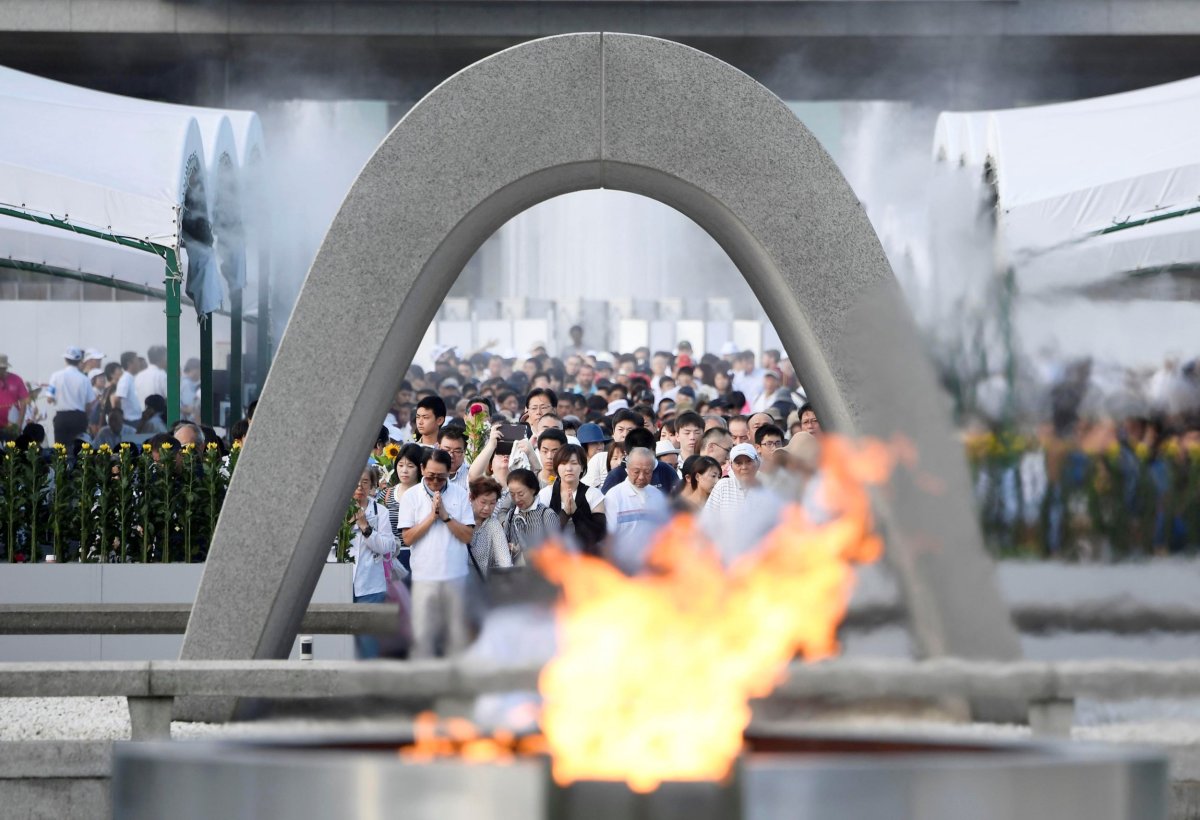A museum dedicated to the Manhattan Project, the World War II research effort for the atomic bomb, is being urged to state in its exhibits that bombs dropped on Hiroshima and Nagasaki were war crimes.
The first atomic bomb, named Little Boy, was dropped on Hiroshima on August 6, 1945, killing between 90,000 and 166,000 people. This was followed three days later by the bomb Fat Man, which was dropped on Nagasaki and killed an estimated 80,000. It was the only time nuclear weapons have been used in the history of warfare.

"For us, [the bombs] were a clear breach of international law at that time," Hiromichi Moteki, of the Society for the Dissemination of Historical Fact in Japan, told the South China Morning Post. "I think there will be problems as they move forward with the project, because the officially held view in the U.S. government, as well as the opinion commonly held by American people, is that these were righteous actions."
The society says that the targeting of civilians during the bombings should be explained in the museum displays.
"If it is made clear in the displays that these were war crimes, then that will be fine. But if that is not made clear, then this is nothing but a false story," he said.
The mayors of the two Japanese cities have complained to former President Barack Obama, the U.S. National Park Service and successive American ambassadors to Tokyo about the national park project.
An official of the Hiroshima city government told the Japanese news agency Kyodo, "We hope the exhibition of the facilities will be based on objective facts and do not glorify the atomic bomb development."
Defenders of the bombs say the Allied powers were forced to make the Japanese surrender and avoided invading their islands, which could have cost many more lives.
"What we want to do is to make sure that we provide multiple and broad perspectives and not draw firm conclusions, but to leave those conclusions to our visitors, giving them the sovereignty of thought," Manhattan Project National Historical Park Superintendent Kris Kirby said, according to the South China Morning Post.
The park was set up by the U.S. government in 2015 and outlines the development of the nuclear bombs that ended World War II. Museum facilities are being expanded in Tennessee, New Mexico and Washington state, where the research was undertaken.
Uncommon Knowledge
Newsweek is committed to challenging conventional wisdom and finding connections in the search for common ground.
Newsweek is committed to challenging conventional wisdom and finding connections in the search for common ground.
About the writer
Brendan Cole is a Newsweek Senior News Reporter based in London, UK. His focus is Russia and Ukraine, in particular ... Read more
To read how Newsweek uses AI as a newsroom tool, Click here.








